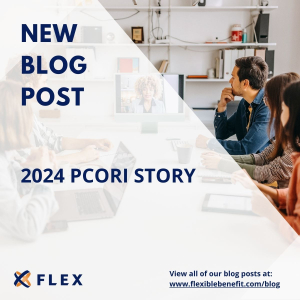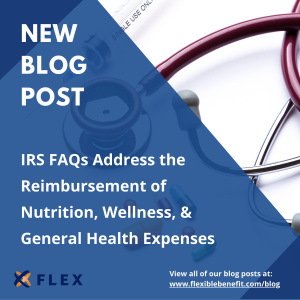HRA
The Affordable Care Act (ACA) created a research institute known as the Patient-Centered Outcomes Research Institute (PCORI). The goal of PCORI is to help patients and those who care for them make better-informed decisions about healthcare choices. PCORI is funded in part by fees which are charged to health plans. The following information is designed to help employers understand their upcoming payment obligations.
On March 17, 2023, the Internal Revenue Service (IRS) published some Frequently Asked Questions (FAQs) as it pertains to the reimbursement of nutrition, wellness, and general health expenses from a Health Flexible Spending Account (FSA), Health Savings Account (HSA), Health Reimbursement Arrangement (HRA), or Archer Medical Savings
The Affordable Care Act (ACA) created a research institute known as the Patient-Centered Outcomes Research Institute (PCORI). The goal of PCORI is to help patients and those who care for them make better-informed decisions about healthcare choices. PCORI is funded in part by fees which are charged to health plans.
The COVID-19 national emergency was set to expire on March 1, 2022; however, President Joseph Biden issued an extension of the national emergency on February 18, 2022. It is unknown at this time when the national emergency will be declared over.
Health Reimbursement Arrangements (HRAs) can be a great way for employers to control their benefits budgets without sacrificing quality of coverage for their employees. There are several different types of HRAs available in the market, but perhaps the most popular is the Integrated HRA. These HRAs work alongside a group health plan to reimburse employees for out-of-pocket expenses. Only those employees enrolled in the group health plan can participate in the HRA.
The Internal Revenue Service (IRS) recently published Announcement 2021-7 which indicates Personal Protective Equipment (PPE), such as masks, hand sanitizer, and sanitizing wipes, may be reimbursed under a Flexible Spending Account (FSA), Health Reimbursement Arrangement (HRA), or a Health Savings Account (HSA). These expenses are eligible for reimbursement if the primary reason for the purchase is to prevent the spread of COVID-19.
Is your benefits administrator not living up to your standards? Are customer service let-downs and reimbursement problems giving you headaches? Are you worried about sticking it out until your next renewal? Well, worry no more! You don’t need to wait until your next renewal to find a better benefits administrator.
Health Savings Accounts (HSAs) are one of the fastest-growing employee benefits-and for good reason! There's no other vehicle under the tax code that has the kind of preferential treatment that HSAs provide. Stacking HSAs with an HRA or FSA maximizes both employer and employee tax savings and gives employees more flexibility to pay for current healthcare needs and save for future needs.
The Internal Revenue Service (IRS) released Rev. Proc. 2020-45 on October 26th with 2021 inflation adjustments for various provisions of the Internal Revenue Code (the “Code”). Included in the announcement are maximum contribution limits for Flexible Spending Accounts (FSAs) and other employee benefit programs. A summary of some of the 2021 contribution limits has been provided below.
Technology has influenced employee behavior and changed expectations. They are no longer comparing good and services, but instead experiences. As a result, they are demanding innovation, engagement, and personalization across every aspect of thier lives, including healthcare.










